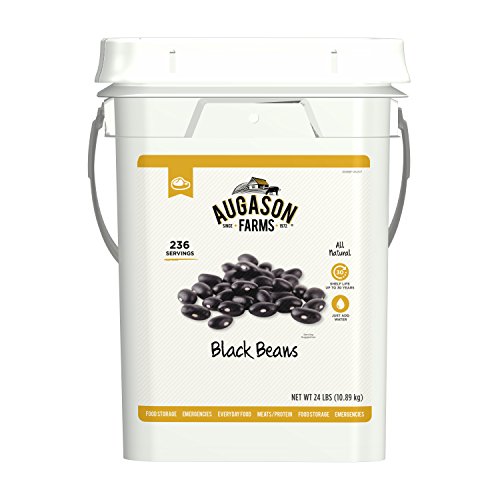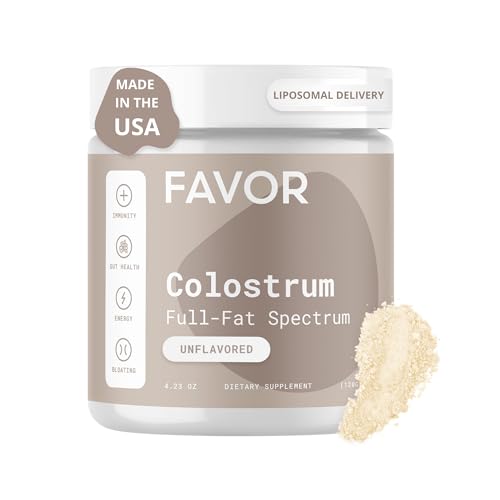



Slow cookers, also known as crock pots, have become a popular kitchen appliance in recent years. They offer a convenient and easy way to prepare meals, especially for busy individuals or families. With their long cooking times and low temperatures, slow cookers are an excellent tool for tenderizing meats and developing rich flavors in soups, stews, and casseroles.
However, one common concern among slow cooker users is whether it’s possible to overcook food in this appliance. After all, if a little slow cooking is good, can’t more slow cooking be even better? The short answer is yes, it is possible to overcook food in a slow cooker.
Slow cookers are designed to cook food at a low temperature over a long period of time. This allows the enzymes in the food to break down and tenderize tough cuts of meat. However, if food is left in the slow cooker for too long, even the toughest piece of meat can become dry and stringy. Overcooking can also cause vegetables to become mushy and lose their vibrant colors. Therefore, it’s important to follow recipes and cooking times carefully to avoid overcooking.
Potential Risks of Overcooking in a Slow Cooker
Using a slow cooker can be a convenient and efficient way to prepare meals, but it’s important to be mindful of the potential risks of overcooking. While slow cookers are designed to cook food at lower temperatures over a longer period of time, there are a few considerations to keep in mind to avoid overcooking your dishes.
1. Texture and Taste:
Overcooking food in a slow cooker can result in a loss of texture and flavor. Meats, such as chicken or beef, can become dry and tough when cooked for an extended period of time. Vegetables can also become mushy and lose their bright color and crispness. It’s essential to follow recipes and cooking guidelines to ensure that the food is cooked to perfection.
2. Safety Concerns:
Overcooking in a slow cooker can pose safety risks, especially when it comes to meats. While slow cooking can tenderize tougher cuts of meat, it’s crucial to ensure that they reach the appropriate internal temperature to kill any harmful bacteria. Undercooked meat can lead to foodborne illnesses, so using a meat thermometer is essential.
3. Nutrient Loss:
Overcooking can cause a significant loss of nutrients in your food. Vitamins and minerals can break down when cooked for too long, resulting in a less nutritious meal. To retain more nutrients, it’s best to cook vegetables until they are tender but still have a bit of crunch.
4. Time and Energy Wastage:
Overcooking can result in wasting both time and energy. If you cook food for too long, it can become overdone and unappetizing. Additionally, leaving the slow cooker on for extended periods of time can lead to unnecessary energy consumption, impacting your electricity bills.
Overall, while slow cookers are a convenient cooking method, it’s important to monitor cooking times and follow recipes closely to avoid overcooking. By doing so, you can ensure that your meals are flavorful, safe to eat, and packed with the nutrients you need.
Tips for Avoiding Overcooking in a Slow Cooker
A slow cooker can be a convenient and effective tool for cooking a wide range of dishes, but it’s important to know how to use it properly to avoid overcooking your food. Here are some tips to help you make the most out of your slow cooker:
1. Choose the right ingredients
When using a slow cooker, it’s important to choose ingredients that are suitable for long, slow cooking. Tough cuts of meat, such as beef chuck or pork shoulder, work well in a slow cooker and can become tender and flavorful after several hours of cooking. On the other hand, lean cuts of meat or seafood may become dry and overcooked in a slow cooker.
2. Cut ingredients into uniform sizes
To ensure even cooking, it’s important to cut your ingredients into uniform sizes. This will help them cook at the same rate and prevent some pieces from becoming overcooked while others remain undercooked. It’s generally recommended to cut meat and vegetables into 1 to 2-inch pieces.
3. Don’t overfill the slow cooker
It’s important to leave some space for the ingredients to expand and for the liquid to simmer. Overfilling the slow cooker can lead to uneven cooking and may cause the food to overcook. It’s generally recommended to fill the slow cooker no more than two-thirds full.
4. Use the right cooking time and temperature
Each slow cooker is different, so it’s important to follow the cooking instructions provided with your specific model. In general, most recipes recommend cooking on low heat for 6 to 8 hours or on high heat for 4 to 6 hours. It’s important not to exceed the recommended cooking times, as this can lead to overcooked food.
5. Check the food for doneness
It’s a good idea to check the food for doneness in the final hour of cooking. This will help you avoid overcooking the food and ensure that it’s cooked to your desired level of tenderness. You can use a meat thermometer to check the internal temperature of meat or simply test the tenderness of vegetables with a fork.
By following these tips, you can make sure that your slow cooker meals turn out perfectly cooked and delicious every time. Enjoy the convenience and versatility of your slow cooker without worrying about overcooking your food!
Recommended Cooking Times for Different Foods in a Slow Cooker
Meat:
Cooking times for meat in a slow cooker can vary depending on the type and size of the meat. Here are some general guidelines:
- Beef: For cuts like brisket or pot roast, cook on low for 8-10 hours or on high for 4-6 hours. Ground beef should be cooked on low for 4-6 hours.
- Pork: Tender cuts like pork loin can be cooked on low for 6-8 hours or on high for 3-4 hours. Tougher cuts like pork shoulder or ribs may require longer cooking times of 8-10 hours on low or 4-6 hours on high.
- Chicken: Boneless, skinless chicken breasts or thighs can be cooked on low for 4-6 hours or on high for 2-3 hours. Whole chickens should be cooked on low for 6-8 hours or on high for 3-4 hours.
Vegetables:
Vegetables generally cook faster than meat in a slow cooker, so they should be added later in the cooking process:
- Root vegetables like carrots and potatoes can be added at the beginning with the meat.
- Tender vegetables like bell peppers, zucchini, or mushrooms should be added during the last 1-2 hours of cooking.
- Leafy greens like spinach or kale should be added during the last 30 minutes of cooking.
Grains and legumes:
Grains and legumes require longer cooking times in a slow cooker:
- Rice: White rice can be cooked on low for 2-3 hours, while brown rice may require 4-6 hours on low.
- Beans: Most dried beans should be soaked overnight before cooking on low for 6-8 hours or on high for 3-4 hours. Canned beans can be added during the last 1-2 hours of cooking.
Remember, these are just general recommendations. Cooking times may vary depending on your specific slow cooker model and personal preferences. It’s always a good idea to check the doneness of your food with a meat thermometer before serving.
Signs That Your Food May Be Overcooked in a Slow Cooker
Using a slow cooker can be a convenient way to prepare meals, but it’s important to monitor your food to ensure it doesn’t become overcooked. Here are some signs that your food may be overcooked in a slow cooker:
1. Dry and Tough Texture
Overcooked food in a slow cooker can result in a dry and tough texture. This can happen when the food is cooked for too long or at too high of a temperature.
2. Excessive Shrinkage
If your meat or vegetables have shrunk significantly in size, it may be a sign that they have been overcooked. Overcooking can cause the moisture in the food to evaporate, leading to shrinkage.
| Signs of Overcooking in a Slow Cooker | Possible Causes |
|---|---|
| Dry and tough texture | Cooking for too long or at too high of a temperature |
| Excessive shrinkage | Evaporation of moisture due to prolonged cooking |
| Burnt or stuck-on food | Food being in contact with the cooker’s hot surface for too long |
| Loss of flavor | Long cooking time leading to flavor degradation |
| Collapsed or mushy texture | Overcooking delicate ingredients or ingredients with high water content |
3. Burnt or Stuck-on Food
Finding burnt or stuck-on food in your slow cooker indicates that it may have been cooked for too long or at too high of a temperature. This can happen when the food is in direct contact with the hot surface of the slow cooker for an extended period.
4. Loss of Flavor
Extended cooking times in a slow cooker can lead to a loss of flavor in your food. The flavors may become muted or even degrade over time, resulting in a less enjoyable eating experience.
5. Collapsed or Mushy Texture
Delicate ingredients or those with a high water content, such as vegetables or certain meats, can become overcooked and end up with a collapsed or mushy texture. It’s important to monitor these ingredients closely to prevent them from becoming overly soft and losing their texture.
By keeping an eye out for these signs, you can ensure that your food is cooked to perfection in your slow cooker and avoid the disappointment of an overcooked meal.
Questions and answers
Can you overcook meat in a slow cooker?
Yes, it is possible to overcook meat in a slow cooker. Cooking meat for too long can result in it becoming dry and tough.
What happens if you leave a slow cooker on too long?
If you leave a slow cooker on too long, the food can become overcooked and lose its texture and flavor. It may also become dry and tough.
How do you know if you overcooked something in a slow cooker?
You can tell if something is overcooked in a slow cooker if it is dry, tough, and lacks flavor. The meat may also be falling apart or mushy.
Is it better to cook on low or high in a slow cooker?
It is generally better to cook on low in a slow cooker. Cooking on low heat allows for more tender and flavorful results. Cooking on high heat can lead to overcooking and dryness.









